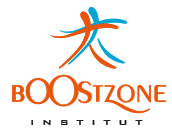Social networks are now a fully integrated part of the world of work. Their most important impact can be summarized within a few points:
- Social relation to work and private life
One’s relation to work is now increasingly related to one’s relation to society, individuals are more and more “defined” by what they do, how they appear in various social networks, professional like LinkedIn or officially private like Facebook. The friending groups (i.e. those individuals one accepts or solicits for being into one’s friend list) include family, friends, relations, colleagues, former colleagues, etc. in a way confusing for all. Some clarification is to be expected in the future either within the social networks (where one will have several categories of friends) or in between social networks (where one will belong to several social networks depending on one’s interest and type of relationships).
This will however not diminish the fact that everyone has become more “visible”, searchable, and that one’s digital footprint will increasingly be part of one’s social identity, including soft elements like reliability, geolocation, etc. Privacy will never be again what it was. This comment is valid for anybody, candidate, employee, supplier, freelance, etc.
- Employers-employees relationships
The former boundaries between private life and business life are blurred as seen above. But other factors tend to change the employer-employee relationship, like the interactions between the personal brand and the corporate brand, the evaluation of candidates and of employees based on the ratings one gets on various social networks (internal and external), the evaluation of corporations and of specific executives via their reputation on various social networks, etc. The relationship becomes much more transparent, with less room for window dressing behaviors and more room for trust building.
- Employee’s visibility, personal branding, CVs, recruitment, job search, head hunting
Because of social networks, the visibility of individuals, and of their “features”, has drastically changed. The old CV does not represent the profile of an individual anymore. Elements like his digital footprint, his friends, his reputation, the professional networks he belongs to, etc. are now well tracked, calibrated and organized. It is possible to believe that within a few years the CV will have disappeared and that most of the “market” dimension of the labor market (i.e. the place where demand meets supply) will go through codified systems of search and matching of profiles. One implication is that having a personal brand, or at least a personal digital identity becomes a must for most individuals.
- Employer’s visibility, brand image, brand communication
Similarly to the employee’s visibility, corporations will have to manage very delicately their reputation on social networks via active and passive ways. Active ways will imply having a proactive communication via pages, twitter accounts, etc. Passive ways will be to engage in discussion, wherever they appear, involving their brand. Communication departments will have to morph into social media players able to listen, convince, correct in non-intrusive and non window-dressing ways.
- Networking for work, for knowledge and expertise
Everybody uses the Internet already as a search engine for information, but increasingly everyone, employees in particular, will use it for finding contacts, experts in some best practices, internal or external to the organization. Networking is becoming a normal feature of work and, soon, the “not invented here” syndrome (i.e. not looking for existing solutions or experts) will be a professional mistake.
- Networking for personal development
Training will soon be just a small part of the personal development of individuals, they will learn to use every possible piece of available source of information allowing them to develop themselves, from blogs they follow or contribute to, individuals they follow or relate to, groups they participate into, etc. And this behavior will be expected from them by their employers or clients (in case of free lances) because it will be a proof of their proactive personal development.
- Network Centric Management
The whole management of corporations will be modified in order to accommodate the facts that the organization chart reflects less than ever the real life of corporations. The “real life” and therefore the real management will have to handle all implications of all the networks within which the employees are active, be they internal or external to the organization. This will in particular impact all HR systems[1] and all “representation” via charts etc. or corporations[2].
- Productivity of employees and of organization
Overall all these elements are announcing a boom in individual, corporate and social productivity. Individual because less time will be spent reinventing the wheel; corporate because the sum of individuals ability to use networks will be a major competitive advantage for gaining speed, innovation and engagement; social because the society overall benefits from the reductions in all the time consuming activities that can disappear thanks to networks and communities (for example organizing a meeting with 20 people can be done in minutes via a tool like Doodle while it took a lot of mails and phone calls just a few years ago)
All these elements imply that players of the Human Resource management function in particular (and most of the executive teams’ members) will have to become experts and consultants, not only on how individuals relate to their world of work, but also on how corporations do relate to their staff, candidates, suppliers, clients, alumni.



So true Dominique!
I recently discovered the power of Facebook while trying to locate and organise a class reunion in the States. The problem became/still is that I had to « friend » people in Facebook that I don’t know but who also now became part of my global network in order to utilise their networks to find more people.
Of course, restricting access to these people is another option, but one I haven’t become too good at yet!
This issue is very interesting Michael, and easy to understand. The aim of FaceBook is NOT to help you organize a class reunion, it is to maximize the network of everyone for increasing its market cap (via various means, no space to discuss them here). But after a while many, like you, will want a real service for locating people and organizing ephemeral events without having to put all participants into your network. Google Wave in a sense had this function. The same is true with internal corporate network: it is important to be able to organize ephemeral groups, what most providers of collaborative software have not yet understood, they build their software as if a connection or a group would be for ever. Why should it be?